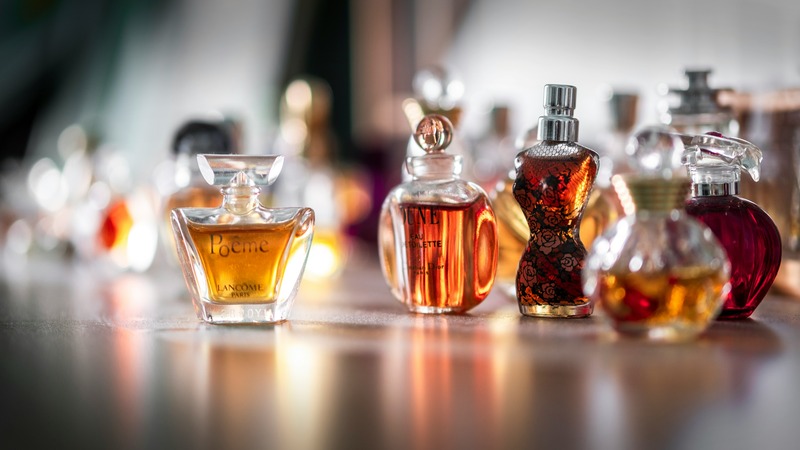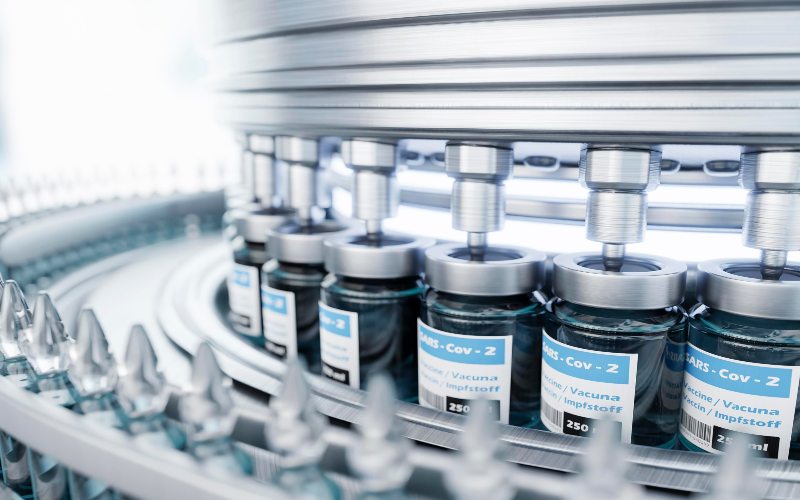Scent that stays: Science and secrets behind smelling good all day

Wanjiku’s advice is rooted in both science and experience. After a decade of matching people with perfumes, whether it’s a spicy Saudi oil for a Mombasa wedding or a sweet gourmand for a Nairobi date night, she has learnt that the secret to a lasting scent is not just in the bottle. It’s in the skin beneath it.
In an age where personal branding extends beyond what you wear or say, the way you smell has quietly emerged as one of the most powerful yet underestimated forms of self-expression.
Whether you're walking into a boardroom, boarding a matatu, or simply passing someone in the street, your scent leaves an invisible yet unforgettable mark.
More To Read
- Ultimate guide to selecting the perfect scented candle for your home
- Expired makeup risks: Experts warn of skin infections, eye damage and vision loss
- How to layer beauty products - and why skincare needs more than 10 minutes
- How sunscreen protects your skin and why consistent use is vital
- Why some deodorants cost more - and why cheap isn’t always better
But how do some people manage to carry a captivating, long-lasting fragrance all day?
Experts say it’s not just about which perfume you buy, but how you wear it.
1. Skin science
According to dermatologists and Nairobi-based fragrance consultant Katherin Wanjiku, who runs a popular perfume stall on the third floor of Sawa Mall, skin type plays a critical and often overlooked role in how long a scent lasts.
“Most people focus on the brand or price of a perfume, but your skin is the real stage,” Wanjiku explains, as she delicately arranges amber bottles of imported oils under fluorescent lighting.
Oily skin, she says, naturally retains fragrance better. This is because the oils create a thin film that acts like a magnet for scent molecules, holding them in place and allowing the fragrance to evolve slowly throughout the day.
“It’s like wearing a scent glove that releases aroma in waves.”
Dry skin, on the other hand, is more like a sponge. It soaks up the perfume, then lets it vanish without a trace.
“People with dry skin often complain that their perfume disappears after an hour. But it’s not the perfume’s fault—it’s the skin’s thirst,” she says.
The remedy, she says, is deceptively simple: hydration.
“If your skin is dry, apply an unscented lotion or even petroleum jelly before you spray. Think of it like priming a canvas before painting,” she says.
Wanjiku’s advice is rooted in both science and experience. After a decade of matching people with perfumes, whether it’s a spicy Saudi oil for a Mombasa wedding or a sweet gourmand for a Nairobi date night, she has learnt that the secret to a lasting scent is not just in the bottle. It’s in the skin beneath it.
2. Pulse points
Where you apply fragrance is as important as what you spray. Perfume reacts to body heat, and applying it to pulse points—like the wrists, neck, behind the ears, inside the elbows, and even behind the knees—intensifies the aroma throughout the day.
Avoid rubbing your wrists together after spraying, as this breaks down scent molecules, diminishing their structure and longevity.
3. Proper layering
Fragrance layering, popularised by French perfumers and now embraced globally, involves using products with complementary scents to build depth and longevity.
“At home, you can always start with a scented body wash. Follow with a matching or neutral body lotion. Then you can top off with a high-quality perfume,” says Wanjiku.
“For a scent that lingers, try using products from the same fragrance family—woody, floral, citrus, etc. It’s like building a fragrance wardrobe that works in harmony,” adds Nina Mutuku, founder of Mzuri Scents, a Nairobi-based fragrance boutique.
4. Clothes hold secrets too
Fragrance tends to linger longer on fabric than on skin, which explains why your jumper or coat may still carry the soft trace of your favourite cologne even days later.
Unlike skin, fabric clings to scent molecules more stubbornly, creating what perfumers call a “sillage”—the invisible, fragrant trail a person leaves behind.
However, this effect comes with a word of caution. While it might be tempting to spray perfume liberally over your clothes, doing so without considering the fabric type can backfire.
Some materials absorb scent beautifully; others may stain, discolour, or even become damaged due to the alcohol and oils in the formula.
The key, experts advise, is technique: spray from a distance of around 20 centimetres, allowing the mist to settle evenly and gently onto the fabric, rather than soaking it. This helps to avoid blotches, especially on light-coloured garments.
For best results, focus on less visible or more robust areas of clothing, such as inner linings, the underside of collars, scarves, or the back of your jacket.
These areas not only help trap the scent close to the body but also create a more intimate and understated olfactory aura.
Avoid spraying delicate fabrics like silk, satin, or lace, which may react poorly to alcohol-based perfumes.
5. Storage matters
Heat, light, and air degrade perfume over time. If you want your fragrance to last longer, store bottles in cool, dark places, such as drawers or wardrobes.
Avoid storing them in bathrooms, where humidity speeds up degradation. Always ensure the caps are tightly closed to prevent oxidation.
Proper storage doesn’t just extend the scent on you, it prolongs the perfume’s shelf life itself.
6. Choose the right strength and quality
Perfumes come in different concentrations. Know these terms:
Eau de Cologne (2–4% oil): Light and fleeting
Eau de Toilette (5–15%): Moderate longevity
Eau de Parfum (15–20%): Long-lasting
Parfum or Extrait (20–30%): Most concentrated, often used in small dabs
While stronger isn’t always better, understanding your environment (heat, humidity, indoor vs. outdoor) helps determine the appropriate intensity.
In tropical climates like Kenya, lighter but high-quality perfumes are recommended to avoid overpowering others nearby.
7. Food and drinks
Your body chemistry affects how scent behaves. What you eat, how much water you drink, and even your stress levels impact how fragrance projects and lasts.
Spicy foods and alcohol can alter your skin’s natural pH and increase perspiration, which may clash with perfume.
Science recommends drinking plenty of water and maintaining a balanced diet to stabilise scent.
“A healthy body is a clean canvas. You can’t mask poor hygiene with a good perfume. Start from within. Take a good bath too—it helps keep the skin moisturised and fresh,” says Wanjiku.
According to a 2024 study by the University of Cape Town, 75 per cent of emotional triggers are tied to smell, not sight or sound. Your fragrance may be forgotten by you, but it is remembered by others.
Top Stories Today











































